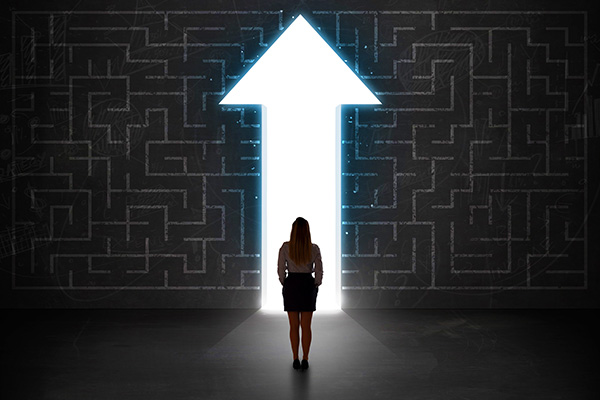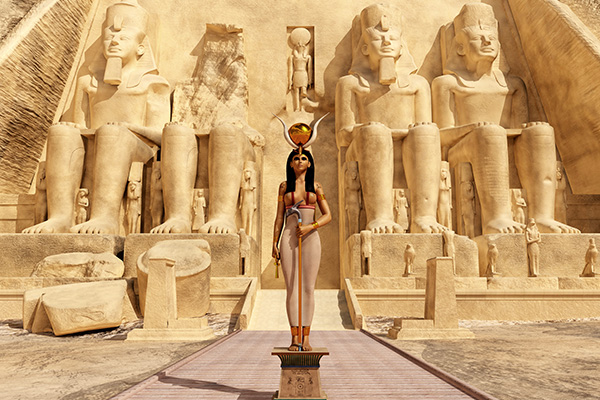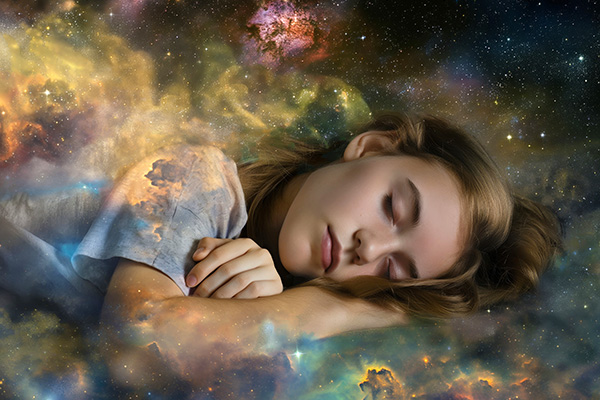Healing
Your Spirit Guides Will Never Lead You Astray
 “My guides must hate me! Why else would they lead me to things that cause me so much pain?” someone once said during a reading. “And where is my guardian angel when I need him?”
“My guides must hate me! Why else would they lead me to things that cause me so much pain?” someone once said during a reading. “And where is my guardian angel when I need him?”
It was not the first time I’ve heard such sentiments from a distressed client. This kind of disappointment and frustration is not uncommon because it cuts to the heart of spiritual seeking.
It is certainly a valid concern. If angels, guides, and ancestors are meant to guide, support, and protect us, then why do they sometimes lead us to pain, heartache, and even trauma? Do they really have our backs, or are they inflicting suffering upon us for some strange reason?
I confess that there was a time in my own life when I also asked these kinds of questions.
But after years of working as a professional psychic and energy healer, as well as through my own spiritual growth journey, I’ve since come to a comforting conclusion. Our spirit helpers always operate from a place of divine wisdom, unconditional love and compassionate support.
Then why, you may ask, do bad things sometimes happen to good people? It’s simple, really. Any detour from our highest good does not occur because spirit somehow miscalculated, neglected, or misrepresented anything.
When we encounter trouble, it is usually our own doing, or something we co-created with others. Whatever the reason or cause, we alone are always the common denominator.
Below are a few examples of such self-inflicted calamities that I have repeatedly come across in my work, as well as how they differ from actual spirit guidance and divine intervention.
What I Learned From Egyptian Goddess Hathor
 From the moment I first encountered her, Hathor, the ancient Egyptian goddess, she felt like a luminous companion on my spiritual path.
From the moment I first encountered her, Hathor, the ancient Egyptian goddess, she felt like a luminous companion on my spiritual path.
To me she isn’t just a myth or a symbol. She’s a living presence and a spiritual guide. She’s also a gentle yet powerful presence in my psychic and healing work. Her energy speaks to me on a deeply intuitive level.
My connection with Hathor began unexpectedly while reading a book on ancient Egypt. Suddenly, I felt a comforting warmth surround me. It was as if a long-lost friend had returned.
Then, I was guided to raise my hands, palms facing outward and I sensed her hands and palms facing mine. A glow of golden light flashed before me and I felt a warm sensation entering my palms and almost as though my hands were being supported and held, and all time was suspended.
In that timeless and powerful moment, Hathor’s nurturing love enveloped me, and her ancient wisdom whispered that time is merely a construct.
In the Infinite Light, there is no past or future, only this sacred now. In is in the present moment that healing and miracles unfold.
As a psychic, I find that Hathor naturally aligns with my practice. She is not just the goddess of love and beauty, though she radiates both. She embodies a vibrant, nurturing energy that opens emotional and spiritual channels.
A Step-By-Step Guide To Manifesting True, Lasting Love
 Have you been asking yourself: Does he love me? Is he into me, like I am into him? Where is my life partner, my soulmate? Is my person ever going to come into my life?
Have you been asking yourself: Does he love me? Is he into me, like I am into him? Where is my life partner, my soulmate? Is my person ever going to come into my life?
We all want that amazing, healthy relationship where we feel desired, respected, appreciated, and deeply connected. There’s nothing wrong with wanting a love that feels like it was written in the stars.
But many people don’t really know how to get there. If you’re feeling a bit lost about where to start, or confused about why love hasn’t shown up for you yet, you’re not the only one.
No matter how down you might feel, your desire for deep, lasting love is very much possible.
One of the first steps is to stop doubting your own value. Feeling unworthy is one of the main reasons many people do not meet their person.
You’re totally worthy of the kind of relationship you’re after. Yes, you! And it can start right now.
Sometimes the underlying issue is subtle, like a limiting belief, an old emotional wound, or a vibrational mismatch between what you want and what you’re actually putting out there. Other times, it’s just that you haven’t quite tapped into your manifesting power yet.
Here’s the thing: love isn’t something you chase. It’s something you align with. Everything you think, feel, and do contributes to how you see your world. True love wants to find you. You just need to meet it halfway. It all starts with self-awareness, a mindset shift, and the courage to heal what’s been holding you back.
Honoring Yourself In Difficult Family Relationships
 Family dynamics can be tremendously complex for many of us. These relationships are multilayered and deeply ingrained, often playing out across generations.
Family dynamics can be tremendously complex for many of us. These relationships are multilayered and deeply ingrained, often playing out across generations.
Many of my clients seek psychic insight about family matters. After matters of love and romance, and then business or career, family is often the most emotionally charged subject.
In readings, especially with empaths, intuitives, and highly sensitive individuals, I hear countless stories of family pain. Many carry a sense of never belonging, of being misunderstood or scapegoated.
These emotional burdens are often the heaviest that people bear because they are tied to the people they loved first and still love, despite the hurt.
When control or finances are interwoven into the family structure, the complexity of these relationships multiplies.
For many, family represents a love-hate relationship or a deep bond that carries deep wounds. While we cannot choose our family, we do have a say in how we interact with them, how we respond, and whether we continue to engage.
Severing family ties is a significant and often heartbreaking decision that is never taken lightly. By the time someone considers taking this step, the drama or emotional abuse has often been ongoing for decades and is sometimes rooted in a vividly painful childhood.
Aligning With Lunar Energy Can Transform Your Life
 The Moon may appear subtle and serene in the night sky, but don’t be fooled. Her influence on our lives runs deep.
The Moon may appear subtle and serene in the night sky, but don’t be fooled. Her influence on our lives runs deep.
Many of us feel her pull, experiencing everything from restless sleep to emotional surges, even if we don’t quite understand why. Her cycles are ancient, her rhythm is eternal, and her whispers can guide us toward profound inner harmony if we choose to listen.
The Moon has been a source of mystery, reverence, and deep spiritual connection for humanity since the dawn of civilization. Across cultures and generations, she has been worshiped as a deity, tracked as a celestial guide, and honored through rituals that align with her phases.
Ancient civilizations such as the Babylonians, Egyptians, and Greeks meticulously studied her movements, associating them with tides, fertility, and even the passage of time.
The lunar calendar, still used in various traditions today, reflects the importance of her cycle, shaping religious observances like Ramadan and the Chinese New Year.
Her phases—waxing, full, waning, and new—have inspired countless traditions rooted in transformation and renewal. The Full Moon, in particular, has been regarded as a time of heightened energy, illumination, and manifestation.
In the realm of personal and spiritual health and well-being, the Moon is also much more than a celestial body. She is a divine force and a sacred mirror to our innermost energetic tides. By syncing with her cycles, we can unlock a deeper connection to ourselves, the Earth, and the Universe.
Are You Holding On To The Wrong Person?
 Many of the questions that callers ask me during readings have one thing in common: how another person is affecting the their health, happiness, and peace of mind.
Many of the questions that callers ask me during readings have one thing in common: how another person is affecting the their health, happiness, and peace of mind.
Despite the differences in the details, the underlying story is often the same: the person’s inner light is dimmed because they have been giving too much power to another person’s choices, moods, or shortcomings.
Many people seem to be in the wrong relationships. They hold on, waiting for things to change and hoping for the best. They postpone plans, silence their own needs and preferences, and test the limits of their patience, believing that a breakthrough will come tomorrow.
However, that is usually not what happens. People do not change for another person, and if they do, it never lasts or works out in the long run. A change driven by the need to please someone else rarely survives the stress of real life. As soon as complications arise, old habits resurface. People can only change for themselves.
Spirit’s guidance on this is always very clear: hanging onto the wrong person — whether a friend, family member, spouse, partner, lover, or boss — prevents us from experiencing the best life has to offer.
When we’re busy monitoring someone else’s actions, we have less capacity for our own personal and spiritual growth. This prevents the amazing blessings waiting for us from coming in, not because the universe is ‘stingy,’ but because our time and attention are fully booked.
